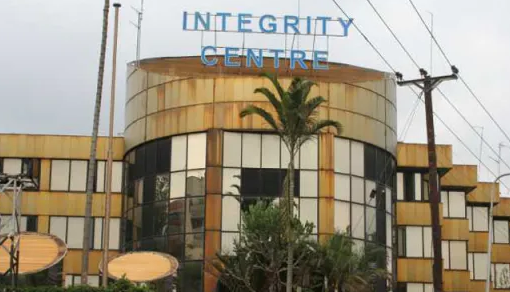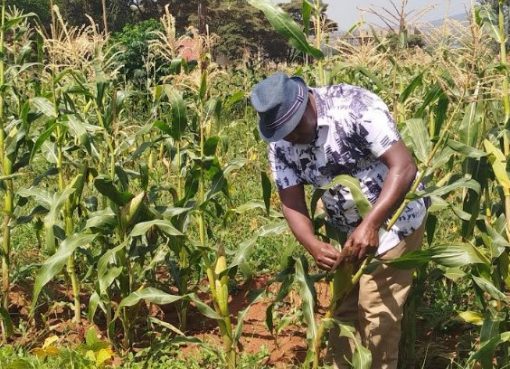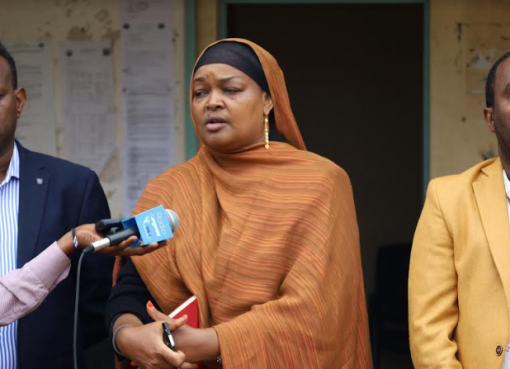Digital money lending through mobile phones, is a ticking time bomb that is pushing many young people in the country into depression.
So easily accessible and addictive, last year alone, sources indicated Kenyans borrowed nearly Sh1.2 billion a day in mobile loans, signaling a deepening debt dependence that increased with the negative impact of Covid-19 on the economy.
Speaking to KNA, some young people in Murang’a, revealed that they have been listed by the Credit Reference Bureau (CRB), due to failure to repay loans on time.
Thanks to mobile banking, a smart phone owner can borrow from as little as Sh 500 to as much as Sh 70,000 without breaking a sweat, all one needs is to be tech savvy.
Recent studies place the youth at the center of this borrowing web as they mostly want instant gratification.
They want it here and now and a smart phone comes in handy but not without dire consequences.
Anastacia Njoki, aged 21, and a third year university student, admits to having four mobile money lending apps on her smartphone.
“From one of them, I started with a loan limit of Sh 500, which grew to Sh 4,500. Cumulatively I currently owe the various mobile money apps Sh 7,000. Sometimes I find myself with loan accruing to more than Sh 20, 000 which I have no idea how to pay them,’’ said Njoki.
According to a 2018 digital credit survey, there are at least 50 mobile phone lending apps operating in Kenya currently. The industry is largely unregulated but includes major financial players.

Majority of the young people borrow on impulse since the loans are readily available.
“One time I passed near a boutique and saw dresses that I liked and since I did not have cash, I borrowed from one of the mobile apps and purchased several dresses,” said Njoki
She confesses that the Administrators of these apps kept calling her to settle her loans which forced her to delete the apps so as to evade the ceaseless calls and text messages.
Consequently, this saw Njoki listed in the CRB which means she cannot access loans now or in the future unless she clears with the listing bureau first.
Many Young Borrowers struggle to pay their loans. According to a survey by Micro-Save a Financial Services Consultancy, 2.7 million borrowers have been negatively listed by CRB in the last three years, 15 per cent of them for amounts of less than Sh. 200
For some youths, their pending loans span five or more years. A 38-year-old, Justus Mwangi borrowed a quick loan in 2016 while at University since he needed to hold a birthday party for his then girlfriend.
“I borrowed Sh 1,500 from one of the mobile lending app, organized a party but I was unable to pay back. The admins made several calls, texts and emails to probe me to pay. I promised to pay back once I get a stable job,” he stated.
Mwangi was listed on CRB after four years of being pestered to pay. To date, he is still listed and cannot access any loan.
However, a few have used the proceeds from the loans to set up businesses and develop their entrepreneurship skills.
Joseph Kiarie, 24-year-old and Fourth year University student borrowed Sh 30,000 loan which he used to set up a movie and PlayStation shop in Kandara.
“I increased my loan limit by repaying on time and in due time I was able to borrow more money that enabled me to open another branch in Kitui,” said Kiarie.
By paying the loans and borrowing more, His tech movie shop PlayStation and cyber, has managed to open branches in Kitui, Kwa Vonza, Nairobi and Kandara under the management of Kiarie.
He, however, admits that he has also been listed on CRB as he defaulted on paying one app loan in 2020 as his business was hit hard by the Covid-19 pandemic.
“When the economy stabilizes I will clear my loan so as to continue growing my businesses,” he further stated.
Being listed on the CRB came as a disguised blessing for a 35-year old, Johnson Kariuki, a journalist.
Kariuki had six lending apps on his phone and had grown his credit worthy with one App from Sh 500 to Sh 15,000.
“I would borrow and repay severally. I was addicted to a never ending cycle. I did not do anything fruitful with the money. In 2019, the ceaseless calls from the lenders drove me into depression. I was unable to pay and got blacklisted. I had to change my line and use a small phone. This came as a relief as the other lenders couldn’t lend me money,” he adds.
Kariuki said being blacklisted helped him to avoid incurring loans most of the time as he remains non-committal as to when to clear his loans and get a positive listing.
By Florence Kinyua and Bernard Munyao





